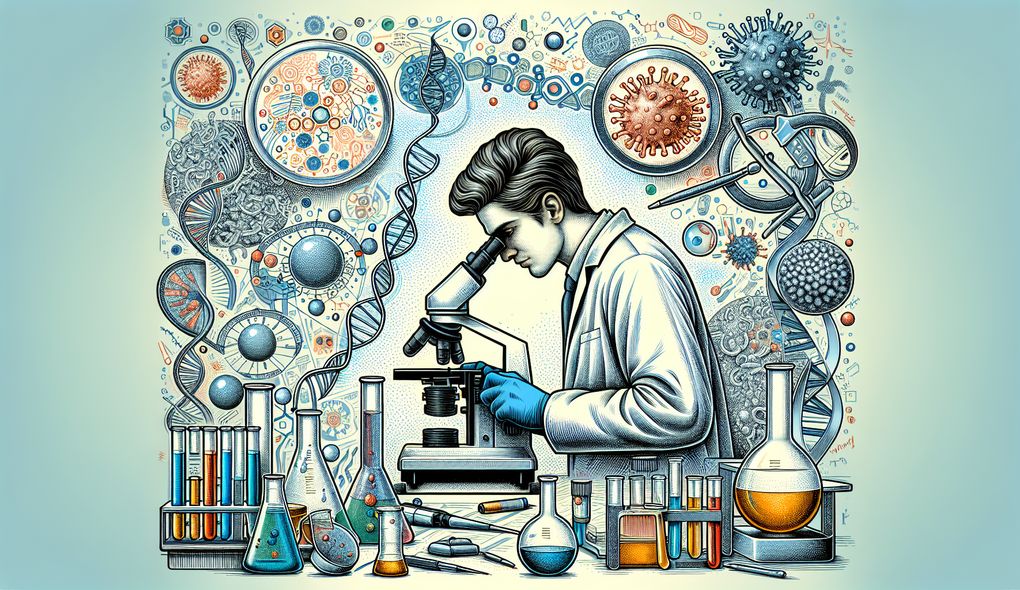Describe a time when you had to troubleshoot a laboratory experiment that was not producing the expected results.
INTERMEDIATE LEVEL

Sample answer to the question:
During my time as a Biomedical Scientist, there was an instance where I had to troubleshoot a laboratory experiment that was not producing the expected results. The experiment aimed to investigate the effect of a specific drug on cancer cells. However, the initial results showed no significant impact on cell growth. To troubleshoot, I reviewed the experimental procedure and identified a potential issue with the drug concentration. I decided to optimize the drug concentration by conducting a series of pilot experiments. After several iterations, I found that a higher concentration of the drug was necessary to observe the desired effect. By adjusting the drug concentration, we successfully replicated the experiment and obtained the expected results. This troubleshooting process required critical thinking and problem-solving skills as well as attention to detail and scientific knowledge in pharmacology and cell biology.
Here is a more solid answer:
As a Biomedical Scientist, I encountered a situation where a laboratory experiment did not yield the expected results. The experiment involved studying the effect of a novel drug on cancer cells. Initially, the results showed no noticeable impact on cell growth, which was unexpected based on the drug's mechanism of action. To troubleshoot the issue, I conducted a thorough analysis of the experimental procedure, focusing on the drug preparation and delivery. I realized that there was a potential error in the drug concentration used. To address this, I designed a series of pilot experiments to optimize the drug concentration. Through careful iterations and data analysis, I determined that a higher concentration of the drug was required to observe the desired effect on cell growth. By adjusting the drug concentration, we successfully replicated the experiment and obtained the expected results. This troubleshooting process showcased my technical expertise in molecular biology and biochemistry, as well as my critical thinking and problem-solving abilities. I demonstrated strong organizational skills by meticulously documenting the experimental steps and analyzing the data to draw meaningful conclusions. This experience highlighted my attention to detail and ability to adapt to unexpected challenges in a laboratory setting.
Why is this a more solid answer?
The solid answer provides more specific details about the candidate's technical skills in molecular biology and biochemistry, their critical thinking abilities, and their organizational skills. The candidate discusses their analysis of the experimental procedure, the design of pilot experiments, and their attention to detail in documenting the process. However, it can be improved by providing more information about the candidate's collaboration with other team members and their ability to adapt to changing research priorities.
An example of a exceptional answer:
As a Biomedical Scientist, I faced an intriguing challenge when a laboratory experiment did not yield the anticipated results. The experiment aimed to investigate the effect of a novel drug candidate on cancer cells by targeting a specific cellular pathway. Initial results indicated no significant alteration in cell growth, which contradicted our hypothesis based on previous studies. Troubleshooting this discrepancy required a collaborative effort with my team. We gathered different perspectives and analyzed the experimental procedure meticulously. Through discussions, we deduced that the drug's stability might have been compromised during storage and handling. To validate this hypothesis, I performed additional stability testing, including temperature and pH variations. It was revealed that the drug was sensitive to acidic conditions, causing degradation and loss of potency. Armed with this knowledge, we revised the storage protocol and properly handled the drug to maintain its stability. By repeating the experiment with the revised drug handling protocol, we achieved the expected results, confirming the drug's efficacy in inhibiting cancer cell growth. This experience not only demonstrated my technical proficiency in molecular biology and biochemistry but also showcased my adaptability to rapidly changing technologies and research priorities. Moreover, it emphasized my collaborative spirit, as I actively sought input from colleagues and integrated their insights into problem-solving. Through this troubleshooting process, I honed my critical thinking skills and reinforced my commitment to ethical scientific research and integrity.
Why is this an exceptional answer?
The exceptional answer includes specific details about the candidate's experience in troubleshooting a laboratory experiment. The candidate discusses collaborating with their team, analyzing the experimental procedure, and identifying the issue with the drug's stability. They also highlight their adaptability to changing technologies and research priorities, as well as their commitment to ethical scientific research and integrity. This answer provides a well-rounded overview of the candidate's skills and attributes. However, it can be further improved by incorporating more information about the impact of their troubleshooting efforts and their contribution to the advancement of healthcare technologies.
How to prepare for this question:
- Review and refresh your knowledge in molecular biology, biochemistry, and data analysis.
- Reflect on past experiences where you encountered unexpected challenges in a laboratory setting and how you resolved them.
- Familiarize yourself with the principles of Good Laboratory Practice (GLP) and regulatory compliance.
- Practice explaining scientific concepts and procedures in a clear and concise manner.
- Develop your critical thinking and problem-solving skills by engaging in puzzles or case studies relevant to biomedical research.
What are interviewers evaluating with this question?
- Technical skills in molecular biology and biochemistry
- Critical thinking and problem-solving abilities
- Strong organizational skills with attention to detail

